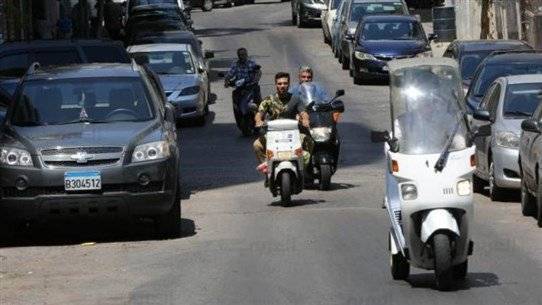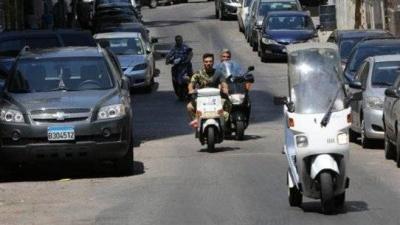Lebanese citizens have only one solution to cope with the crisis of rising fuel prices and the collapse of public transportation: motorcycles instead of cars. This phenomenon has often been discussed and highlighted. The Lebanese always find a way to remain on their feet. After their purchasing power declined, they were forced to change their daily life behaviors and re-prioritize their needs.
Today, it has become difficult for individuals to reach their workplaces, schools, and universities due to the high cost of transportation, which exceeds their financial capacity, in addition to the collapse of public transportation that should serve as a suitable alternative in these cases. Despite the dangers of riding motorcycles, they have become a primary means of transport in Lebanon, as their acquisition costs less than that of a car.
"A necessary evil," one motorcycle rider described the situation, stating: "The rise in prices in Lebanon has prompted many to consider buying one, something they wouldn't have thought about before. The economic crisis in Lebanon, low salaries, the fuel crisis, and the continuous rise in fuel prices have all contributed to making motorcycles a desired means of transportation."
**Import Figures**
According to a study by the “International Information” group, Lebanon imported 177,000 motorcycles over six years. "As a result of the financial crisis in Lebanon, which led to rising fuel prices and consequently transportation costs, many Lebanese have opted to purchase motorcycles for commuting as an alternative to cars. After witnessing 29,102 motorcycles imported in 2021, the number surged to 47,077 by the end of July 2022, bringing the total number of motorcycles imported from 2017-2022 to 177,388. The total number of registered motorcycles stands at around 289,000, while unregistered ones may be nearing this figure, although we lack precise numbers."
**Increased Demand for Motorcycles**
As the crisis in Lebanon worsens, with financial constraints tightening, the Lebanese have begun searching for low-cost transportation options regarding gasoline and repair costs, such as small motorcycles that are priced lower than cars and have cheaper spare parts and fuel costs.
Adnan Al-Attar, owner of Al-Attar Motorcycles, confirms that "the demand for motorcycles and their spare parts has significantly risen after the fuel prices increased, leading most state employees, students, and others to rely on motorcycles as a cheaper alternative to other means of transport. Regarding price development, despite the increase in demand for motorcycles, prices have dropped due to reduced costs for importers, specifically due to diminished shipping costs from abroad, which were around $17,000 per container, as well as for domestic transportation.”
**Individual Solutions in the Absence of the State!**
"In general, when the state is absent in light of the collapse and is unable to provide alternatives for citizens regarding some goods that have become exorbitantly priced, citizens turn to find solutions for themselves, meaning 'individual solutions' rather than collective solutions at the community level," says Shadi Faraj, one of the founders of the Passenger Rights Association.
"This situation has led some to violate regulations and resort to unregulated matters; improper use of motorcycles and tuk-tuks, alongside failures to register and secure them, are among the primary reasons for this phenomenon, which is a result of the absence of transportation policies and accountability from the relevant parties. They lifted fuel subsidies without presenting the Lebanese citizen with other alternatives, whether concerning public transportation or investing in new transport lines and services. To this day, there is no clear transportation plan. Although 50 buses, a grant from France aimed at developing public transportation, have arrived in Lebanon, the state has been unable to benefit from them. The government is fundamentally incapable of managing its institutions, so how can it manage and operate these buses?
Lebanon needs a system to organize public transportation. Citizens are trying to find solutions to meet their daily needs, but these solutions are only temporary. "If the transportation sector had been properly supported instead of the fuel traders, things would have been different," Faraj says; "which means the support funds should have gone to the right hands rather than to traders, to support projects that have long-term benefits, such as establishing a transportation plan, purchasing buses for either public transport or even for existing private transport, and creating paths for bicycles and motorcycles in major cities."




